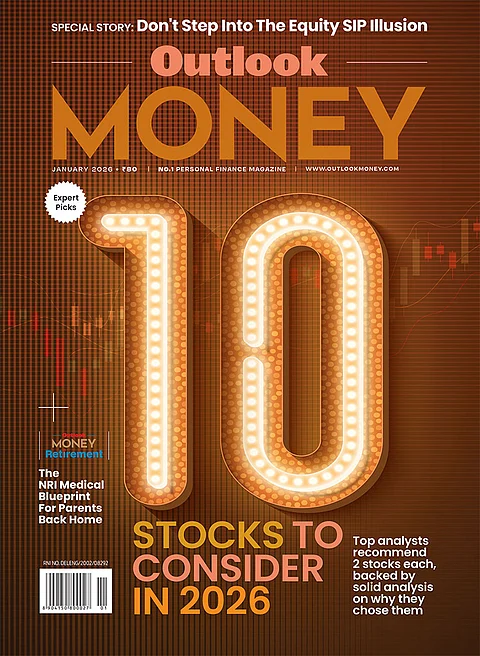Your capacity for success will be altered according to the image you have of yourself. So, set it on the right trajectory to move to a higher level
Q) When I say “dog”, what comes to your mind?
A) “English bull terrier, my favourite dog breed. White, with a patch over one eye, chunky, affectionate, and fun loving.”
When the word dog was uttered, the individual who answered instantly visualised the word based on his memories and experiences. He did not see the word D-O-G, he visualised it. That’s because humans predominantly think visually, in pictures and videos. This interaction is not something I made up. It took place on the podcast, Diary of a High Net Worth Investor, wherein Ravi Dua (guest) posed the question, and Graham Rowan (host) answered.
Take Coke. What comes to your mind when you hear the word coke? The pleasure of having a coke at a school friend’s birthday party because your mother would not keep it at home. The time you and your college friends shared a can of coke after a football game. The evening in a pub where you had a rum-n-coke on your first date with your wife. A glass of ice with the aerated drink poured over it on a hot summer day. That’s because Coca-Cola is not selling you a drink, but a memory.
Coca-Cola as a company knows this, and has a behavioural science team to better understand consumer wants and needs, and enact more targeted marketing activations.
Boat. What comes to your mind? A cruise liner? A yacht? A fisherman’s boat? A sail boat? House. Do you immediately see your house or the dream house you aspire for?
If you read my monthly column, you may be wondering where I am heading with this. Yes, I am deviating slightly. This time I am not writing with the overt focus on saving, spending and investing. I am looking at the mindset of an entrepreneur or even someone ambitious in their career. And I am basing it on the insights of Ravi Dua, who was born in India, moved to Africa as a child and eventually headed to the West for studies and employment. Now, he is based in England, and mentors, coaches and strategises with entrepreneurs across the world.
Mindset Of An Entrepreneur
Now let’s make it personal. How do you view yourself? Here’s why this is so important. As we picture ourselves, it makes the 18-inch journey from the head to the heart, transforms our personality and this is who we eventually become. Or, as Ravi says, we oscillate around 10-15 per cent of the picture we carry of ourselves, and cannot move beyond that.
- Strategy is important.
- Knowledge is important.
- Technical skills are important.
But all play second fiddle to the mindset and the way you think. This can either turn out to be the ticket to success or the dominant factor that hinders it.
From over 400 entrepreneurs he has worked with, he claims that around 95 per cent of them do not believe that they have what it takes to deliver that vision. And he aims to get them to delete the picture in their minds and superimpose it with another. It is due to the reason that your capacity for achievement can either be limited or expand according to how you view yourself.
Your mindset (the way you view yourself) is like the horse that pulls the carriage (strategy, skill and business plan).
You Can’t Make A Blind Man See
Almost every entrepreneur starts with a vision board, goals, and plans to access capital. Ravi starts with identity because it fuels everything, including purpose and vision. You can’t figure out where you are headed if you are not honest about what you believe about yourself. As he incessantly harps, “you can’t make a blind man see”.
If you are embarking on to an entrepreneurial project or a new corporate role, answer these three questions honestly.
- Do you believe that you have what it takes to deliver the vision that you have laid out in your strategic 3-year business plan?
- Do you really think it is achievable with you at the helm?
- Do you believe that you have the capacity to take the existing business to greater heights?
Ravi gives the example of an individual called Michael who was running a software business in CRM for 16 years. Michael was 49 and had bought out his business partner years ago. The company was reputable, doing well, and had good clients, but was just not saleable. Michael was frustrated because his dream to retire a millionaire did not seem to fructify.
In November 1999, Ravi and Michael began working together. Ravi quickly learned that though Michael knew the technology inside out, was well-versed in everything about the business and great at customer relationships, he failed to see himself as the CRM expert in the UK.
Despite having these mega business plans, he could not visualise the bigger business that he was capable of managing and deserved. He kept disqualifying himself. Ravi could not make the blind man see. The first three to four months were on “radical transformation” because if that did not change, he would not make that leap.
Ravi did not look at strategy or funding or finances at this point, but started with the mindset. Only after a few months, they began to look at what the business was to grow into. This completely transformed Michael’s dream. Long story short, the company got listed on London Stock Exchange (LSE) in April 2001, bang in the middle of the dotcom crash, at 20 times the value of what it was in November 1999.
What could not happen in years, took place in 16 months.
There Is A Time To Manage, And A Time To Lead
In 2019, Ravi began working with Steven (name changed). A corporate whiz kid, he was already running his private firm for five years in Frankfurt. It was a specialised bought firm advising hedge funds in retail real estate. When the retail real estate sector got hit during the pandemic, they decided that it was time to lead. It was not the time to survive, but thrive. When other companies were laying off and were downsizing, they got aggressive and dared to dream about growth. Ravi called this propelled thinking.
Not only did they get massive mandates, but a few years later closed their biggest deal by successfully executing and delivering on a half-a-billion euros shopping centre in Munich. A firm with under 20 employees beat big global players to get the deal.
Wrapping It Up
Your mindset is the foundation upon which you must build your entrepreneurial or professional journey. Or at least set it on the right trajectory. Delete the picture in your mind, if need be, and superimpose another. Your capacity for success will be altered according to the image you have of yourself in mind.
Frustration with circumstance is good because it signals that there is a gap concerning where you are and where you want to be. It was frustration that propelled Michael and Steven out of comfort zones. To achieve something, you have to change the way you think. You can’t be moving to higher levels with the same thinking that got you there. Evidently, you can also apply these principles to manage finances.
By Larissa Fernand, Behavioural Finance Expert







